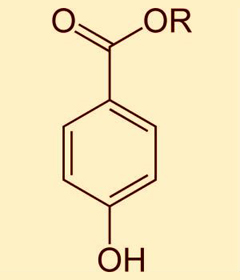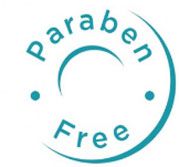Newsletter
You can sign up for our e-mail newsletter to be informed about the developments.


In a vast majority of cosmetic and personal care products on the market, parabens are used as inexpensive preservatives to prevent bacterial and fungal growth and extend the shelf life of the products.
Paraben is not only used in cosmetics but also in many personal care products (such as creams, lotions, deodorants, toothpastes, shampoos, and sunscreens), food items, and medications as a preservative. So how safe is paraben, which we are exposed to dozens of times a day?
Research has shown that due to their chemical structures, parabens can mimic the estrogen hormone, which plays a significant role in reproductive function in women. It is stated that individuals excessively exposed to parabens, defined as endocrine-disrupting chemicals, may experience disruptions in hormone balance and undesired effects on the immune system.
Parabens And Cancer There is no definitive information indicating a direct relationship between cancer and parabens. However, studies have found high levels of parabens in the breast tissue of randomly selected individuals with breast cancer during research on cancerous tissues. It has been concluded that parabens can mimic estrogen hormones and thereby promote the formation of cancerous cells. This suggests a potential relationship between breast cancer development and parabens. Even though there isn’t definitive evidence proving a direct link between cancer formation and parabens, the available findings suggest a cautious approach towards products containing such chemicals.
There is no definitive information indicating a direct relationship between cancer and parabens. However, studies have found high levels of parabens in the breast tissue of randomly selected individuals with breast cancer during research on cancerous tissues. It has been concluded that parabens can mimic estrogen hormones and thereby promote the formation of cancerous cells. This suggests a potential relationship between breast cancer development and parabens. Even though there isn’t definitive evidence proving a direct link between cancer formation and parabens, the available findings suggest a cautious approach towards products containing such chemicals.
The World is Turning to Paraben-Free Products
Although there may not be enough data on the long-term effects of chemicals thought to disrupt the endocrine system on human development, there is an observable trend towards paraben-free products in countries with advanced healthcare systems. Many European countries have indeed banned the use of parabens, especially in products targeted at children and young people. Many large manufacturers worldwide have moved away from using parabens due to intense customer demand.
What to do?
In addition to cosmetic products used for beauty and care, we also come into contact with 8 to 10 chemical-based products daily for cleaning and hygiene purposes. If we want to protect our skin from the harmful effects of parabens, we should pay attention to the ingredients of the products we buy and avoid consuming products that contain methylparaben, ethylparaben, propylparaben, butylparaben, or benzylparaben.